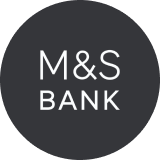Top deals
Top rate

Santander
- 6%
- £7,500 - £15k
- 1-5 years

AA
- 6.1%
- £7,500 - £25k
- 1-7 years

MS Bank
- 6.2%
- £7,500 - £15k
- 1-7 years

Shawbrook
- 6.6%
- £10k - £500k
- 3-25 years